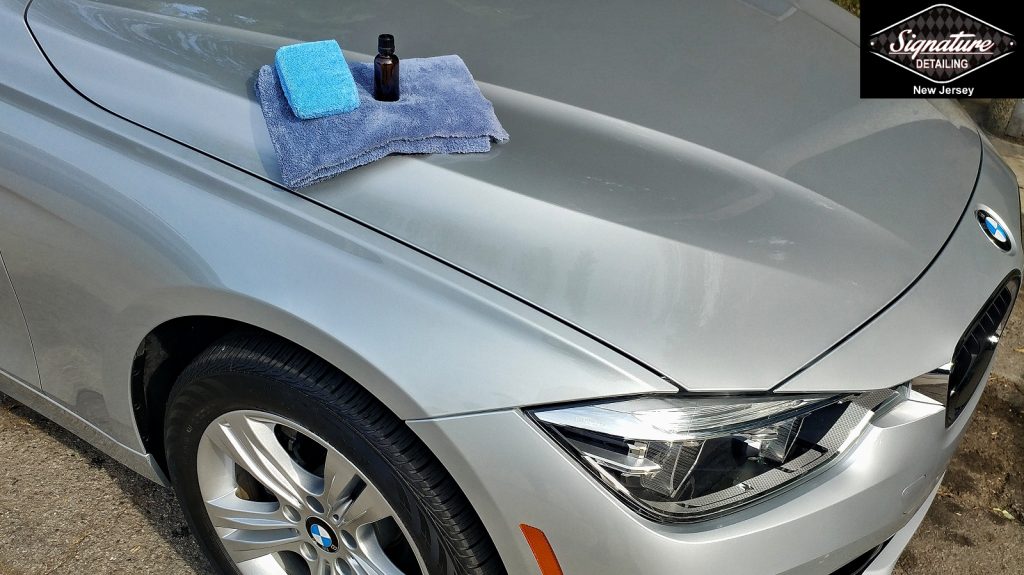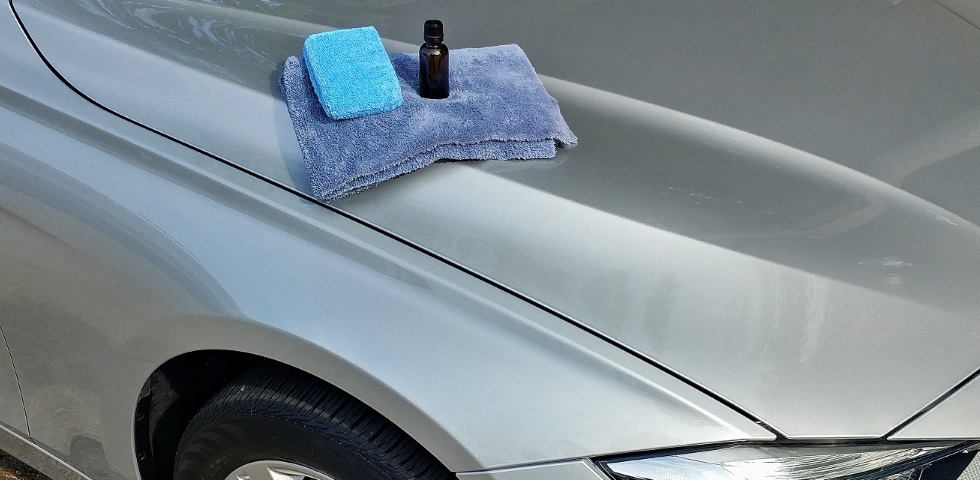
Ceramic Nano Coatings are very popular in today’s car culture and in the auto detailing industry. They provide enhanced protection with a much greater lifespan over all previous forms of surface protection like waxes and sealants. At Signature Detailing in Northern New Jersey, ceramic coatings are a popular and featured service. However, since the climate in the Northeast U.S is seasonally extreme and diverse, we believe in educating clients on the realistic expectations and value which coatings provide to surfaces.
Additionally, we find education about ceramic coatings is necessary because some marketing campaigns and claims have lead consumers to believe ceramic coatings are almost like Star Wars force fields and will protect vehicles from pretty much anything. This is certainly not the case. This article will examine the benefits that ceramic nanocoatings, provide and debunk many false claims.
Ceramic Nano Coating Actual Benefit
Ceramic Coatings are far and away the best and most sophisticated automotive surface protection invented. Here are the common benefits many ceramic coatings provide to vehicles if installed properly:
- Greatly Increased UV Protection
- Enhanced Chemical Protection
- Scratch Resistance to Wash Induced Friction (greatly varies on the coating formulation)
- Increased Visual Gloss
- A Self Cleaning Effect (If the surface is regularly maintained and not contaminated)
- Ease of Maintenance due to Hydrophobic Properties
In context, when listing the above benefits, these pertain to coatings which are engineered to be a more permanent form of protection. That means they are formulated to bond with clear coat, providing long-term surface protection. Additionally, some coating formulations are better at some aspects listed above than others. While some offer greater chemical protection or move UV inhibitors, others offer better water behavior (hydrophobicity) and so on. For specifics on what a specific coating can or cannot do, make sure to consult with a knowledgeable, experienced, and reputable local auto detailer.
What Ceramic Nano Coatings Are NOT
Ceramic Coatings are not a solve-all solution for surfaces. The will not provide a set-it-and-forget-it type of protection as seen by a star wars death star type force field. While some coating companies will go through great lengths to overtly claim extreme protection, it is not a reality.
Ceramic Coatings Do Not:
- Provide Real Protection against Accidental Scratching or Road Impact Collisions (Rock Chips or door dings)
- Make a Vehicle Immune to Regular Car Washing
- Protect a Vehicle from Graffiti, Flame Throwers, or Other Non-Real world Situations
Only Paint Protection Film, also known as clear bra or PPF, can provide surface protection from road debris or rock impacts. This is because the clear urethane is much thicker than coatings and is engineered to absorb the force of impacts. Current coating technology cannot provide this protection.
While coatings may help a vehicle stay cleaner for longer, it does not mean they don’t require regular cleaning. Just like a white shirt or a pillowcase, the less contamination that builds on the surface, the easier it is to obtain optimal cleanliness over time. A coating performs optimally if its surface is not clogged from months of neglected surface contamination. This means that while coatings are much more durable and protective than traditional waxes and sealants, they still need regular maintenance washing.
The benefits of most coatings are listed in a previous section above. While there may be a few that offer other unique benefits such as self-healing capabilities of very light surface marks, this is not typical of most ceramic coatings. Claims of curing graffiti vandalism, displays of fire protection, and other seemingly outlandish circumstances are not valid benefits, instead, they are marketing gimmicks. If marketing tactics look suspicious and have no real technical explanation behind capabilities or claims, then they are most likely suspicious gimmicks.
How to Choose the Best Ceramic Nano Coating for You
In conclusion, ceramic nano coatings are the best form of enhanced protection for painted automotive surfaces to date. They can vary a great deal in terms of their protection aspects and the benefits they provide to automotive finishes. Therefore, it is best to consult a trusted local detailer about the ceramic nano coating that is best for your driving habits and preferences. Ask these professionals about the pros and cons of their coating offerings. The best question might even be to ask them what they use on their own vehicle or their dream car — and why.
Related Posts
- Choosing the Best Vehicle Surface Protection: Paint Protection Film or Ceramic Nano Coatings? (Part 3)
- Choosing the Best Vehicle Surface Protection: Paint Protection Film or Ceramic Nano Coatings? (Part 2)
- Choosing the Best Vehicle Surface Protection: Paint Protection Film or Ceramic Nano Coatings? (Part 1)
- Detailing Projects: Ferrari 488 Pista #2 Paint Correction, Clear Bra, & Ceramic Coating
- Detailing Projects: Ferrari 488 Pista Paint Correction, Clear Bra, & Ceramic Coating
